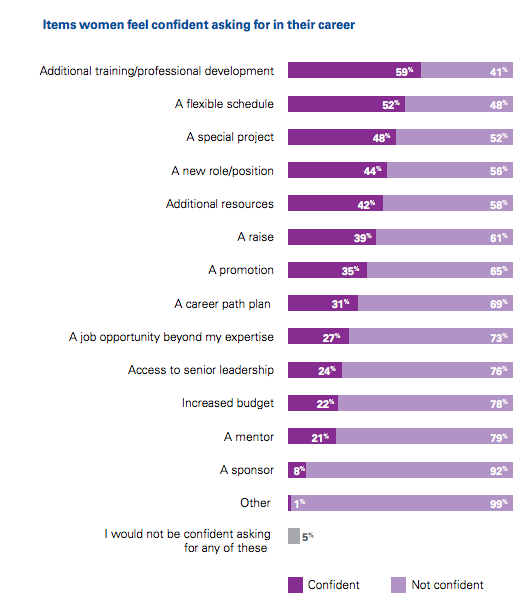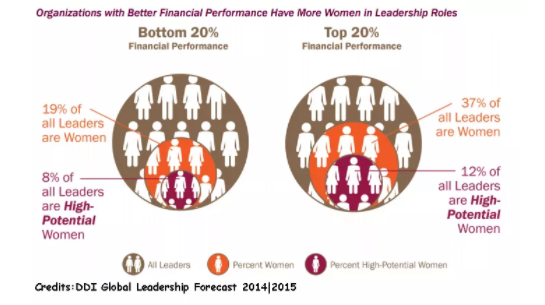Culture March 31, 2017


On your first day at a new job, walking into the office and seeing a handful of female co-workers may make you want to cheer. “Finally, someone who understands!” you think. Unfortunately, women supporting women at the office isn’t that simple. In fact, one 2009 study found that female workplace bullies pick on other women 70 percent of the time.
RELATED: The Real Reasons There Aren’t More Women Supporting Women
To find out why women struggle to support other women at work, ENTITY reached out to Kristy Wallace, president of Ellevate Network, a community of professional women focused on investing in themselves and other women.
Why aren’t more women supporting women in the workforce? Here are four scientific, expert-based and survey-backed reasons why!
Wallace believes that “women are increasingly looking to support one another on the pathway to success,” instead of “compet[ing] against each other for one (or maybe two) spots at the top.” However, research shows that women still commonly view one another as threats.
In fact, one study found that the few business women who do reach positions of power often decline to help women just entering the industry. Why? It’s all about threats…three of them, to be exact:
Sure, more powerful positions might be opening up to women, which could decrease the likelihood of women competing for limited spots. As this research shows, though, women can still feel threatened by female co-workers in several other ways.
RELATED: New Study Shows That Men Finally See Women as Competition in the Job Market
When it comes to excelling in business, mentors and sponsors play big roles. People with mentors are 130 percent more likely to hold leadership positions; similarly, women with sponsors are 27 percent more likely to ask for a raise and 22 percent more likely to ask for challenging assignments.
Having a female sponsor or mentor may be especially helpful, with Wallace explaining: “Leading a business isn’t easy, and I often come up against roadblocks and struggles. However, I’ve found that my peers – women leading other networks and business for professional women – are my greatest resources for advice and support.”


Via KPGM Survey
The problem? Many women aren’t confident enough to ask a woman (or man) to be their mentor or sponsor. In fact, KPGM surveyed over 3,000 professional working women between the ages of 18 and 64 on female leadership. Nine in 10 women reported not feeling confident enough to ask for sponsors, and 79 percent of women lacked the confidence to find a mentor.
RELATED: The Magic of Mentorship: Meet Your Match
Women need (male and female) sponsors and mentors to succeed in their careers…but if they don’t ask, they’ll never get the support they need.
Another issue keeping women from uniting and dominating the workforce? Generational differences and judgement between women. As Robin Ely, Harvard Business School professor, told Mashable: “Junior women tend to be pretty hard on senior women — they have super high expectations, and they’re disappointed when those expectations aren’t met.” Meanwhile, senior women aren’t open about the obstacles they overcame to reach the top – which can make them seem like un-relatable “superwomen” or career women who are failing as mothers and wives.
Judgement about female co-workers’ work/life balance is another problem. Although 72 percent of surveyed members of the Ellevate community report “never judging other women for being working moms,” 11 percent admit doing so before they themselves had children…and six percent have judged in the past, but no longer do.
RELATED: A Mom’s Guide to Kickin’ Butt at Work After Maternity Leave
Until women – of all professional levels and backgrounds – can honestly communicate about their successes and challenges at work, women can’t learn from each other. And until women stop judging each others’ career and family decisions, they certainly can’t support one another.
Perhaps the most frustrating part of women not supporting women at work? They know they need to! In fact, 70 percent of women surveyed by KPMG reported feeling a “personal obligation to help more women advance in the workplace.” The problem? Only one-third of women have learned what concrete steps they can take – from mentorship to giving specific praise – to help their female coworkers.


Via Women of HR
The truth is, women are good for business. Studies have even found that when more women fill a company’s leadership positions, that company boasts a better bottom line. However, if women want to improve their business – and their own experience in the workplace – they need to start walking the walk of supporting each other.
RELATED: The Health Benefits of Women Supporting Women
“Women bring many character traits to the workplace – like being more relationship-oriented – that will put women at an advantage,” explains Wallace. “By being each other’s champion, focusing on collaboration, looking towards the end goal and not getting mired in negativity, women are driving an even greater impact in business – and greater success.”
To the women who already have each other’s backs at work: bravo! Keep up the good work! To the women who’ve never tried or want to, but haven’t yet, you need to take action. And there’s no better time to start supporting other women than now.